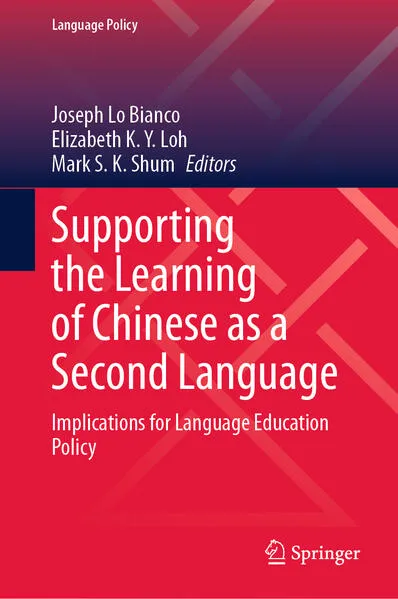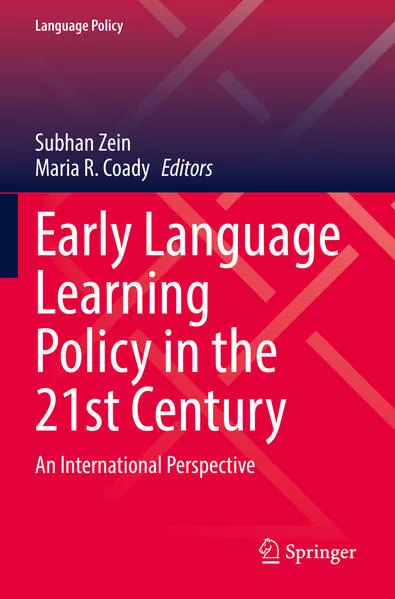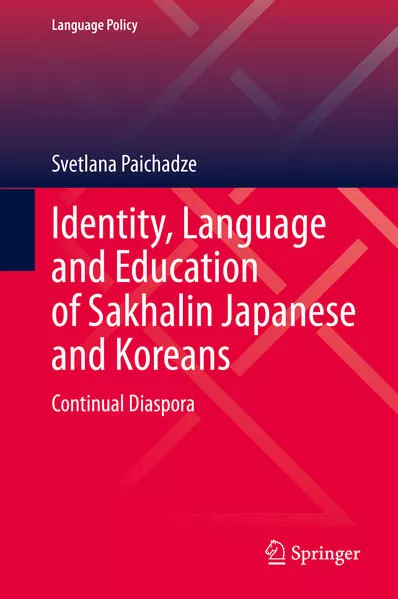Chronologie aller Bände (1 - 3)
Die Reihenfolge beginnt mit dem Buch "Supporting the Learning of Chinese as a Second Language". Wer alle Bücher der Reihe nach lesen möchte, sollte mit diesem Band von Subhan Zein beginnen. Der zweite Teil der Reihe "Identity, Language and Education of Sakhalin Japanese and Koreans" ist am 27.09.2022 erschienen. Mit insgesamt 3 Bänden wurde die Reihe über einen Zeitraum von ungefähr 2 Jahren fortgesetzt. Der neueste Band trägt den Titel "Supporting the Learning of Chinese as a Second Language".
- Anzahl der Bewertungen für die gesamte Reihe: 0
- Ø Bewertung der Reihe: 0
- Start der Reihe: 24.09.2022
- Neueste Folge: 01.12.2024
Diese Reihenfolge enthält 3 unterschiedliche Autoren.
- Autor: Lo Bianco, Joseph
- Anzahl Bewertungen: 0
- Ø Bewertung:
- Medium: Buch
- Veröffentlicht: 01.12.2024
- Genre: Sonstiges
Supporting the Learning of Chinese as a Second Language
The research in this volume takes account of the context of policy promoting Chinese as a second language (CSL) in several countries and regions, (Australia, East Asia and South-East Asia), and the wider social context of multilingual and multicultural societies.
Furthermore, this book reports results of two research studies which investigated how to develop effective strategies to promote learners’ motivation and the motivational developments of adult learners in real-life settings, helping to overcome gaps in this under-researched area.
Findings reported in this book have been scientifically examined and found to be effective in enhancing the learners’ CSL proficiency, increasing their learning motivation, and addressing the need for a diversity of targeted approaches to CSL. Most are applicable across preschool to secondary levels. The theoretical grounding of this research work represents a new direction for research in teaching Chinese as a second language.
- Band: 26
- Autor: Zein, Subhan
- Anzahl Bewertungen: 0
- Ø Bewertung:
- Medium: Buch
- Veröffentlicht: 24.09.2022
- Genre: Politik
Early Language Learning Policy in the 21st Century
This volume analyses the policymaking, expectations, implementation, progress, and outcomes of early language learning in various education policy contexts worldwide. The contributors to the volume are international researchers specialising in language policy and early language learning and their contributions aim to advance scholarship on early language learning policies and inform policymaking at the global level.
The languages considered include learning English as a second language in primary schools in Japan, Mexico, Serbia, Argentina, and Tanzania; Spanish language education in the US and Australia; Arabic as a second language in Israel and Bangladesh; Chinese in South America and Oceania; and finally, early German teaching and learning in France and the UK.
- Band: 31
- Autor: Paichadze, Svetlana
- Anzahl Bewertungen: 0
- Ø Bewertung:
- Medium: Buch
- Veröffentlicht: 27.09.2022
- Genre: Politik
Identity, Language and Education of Sakhalin Japanese and Koreans
This book is of interest to researchers, students, NGO supporters and education policy makers.


